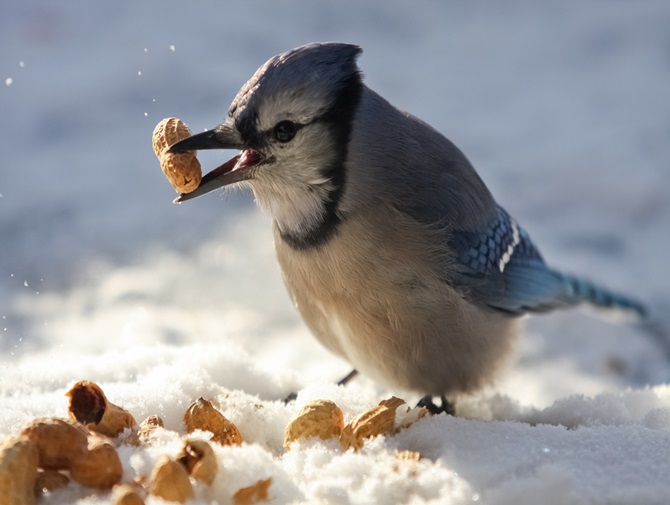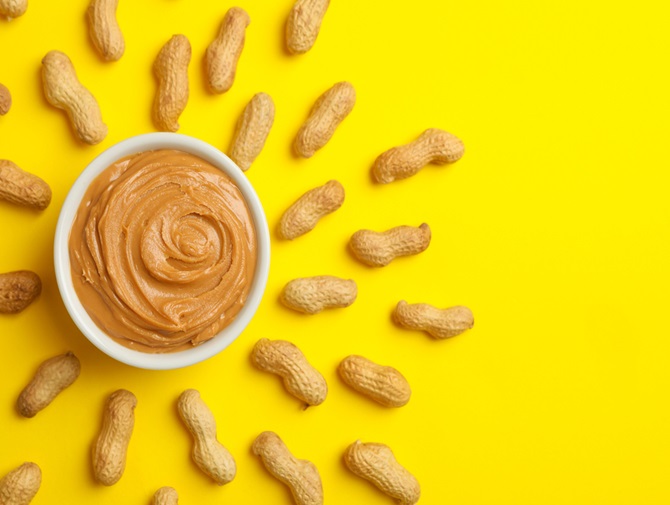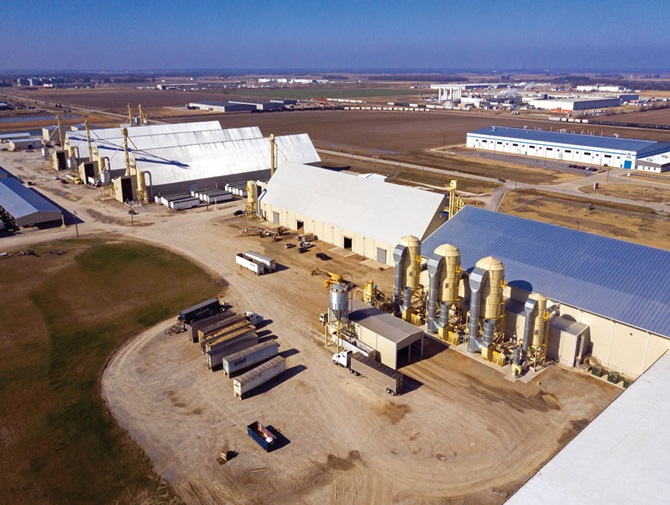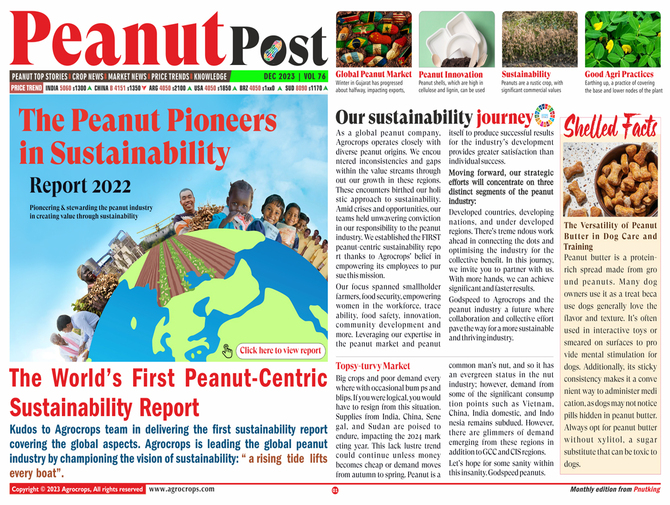

An ounce of information

Article by Pnut King
Published on 12/29/2023 in Peanut News
Split peanuts for birds are a common sight in UK shops. Find out why they can make your garden the most popular spot around for local birds. Visit Agrocrops to know more.
Peanuts are one of the most popular bird feed ingredients in the UK. They are nutritious, versatile, and can help you attract many of the most common species.
But why exactly do birds love them so much, and what exactly makes them such an ideal treat with which to fill your feeder?
The peanuts we feed birds are largely similar to the varieties that humans eat, or that manufacturers prepare into tasty snacks, treats, and peanut butters.
However, there are a few small differences. While the same food standards don’t apply, separate regulations exist to ensure bird feeds are healthy and safe for animal consumption. For example, peanuts flavoured with salt, honey, or candy should never be offered to birds.
Aflatoxin testing has also become particularly prevalent in the bird feed industry in recent years. Aflatoxin is a toxic compound produced by certain types of mould, and can cause damage to humans and birds alike. Which makes ensuring nuts are aflatoxin-free important.
The biggest difference you’ll notice with peanuts intended for birds however is that the aesthetic quality of the nuts matters less. It’s not uncommon for manufacturers to dedicate their whole peanuts for human snacks, and to use split peanuts for birds. These have the added benefit of being easier and safer for birds to peck at.
Peanuts make ideal bird feed and are typically hung in nut feeders to make it easier and safer for birds to stop by.
Here are three reasons why peanuts make such popular bird feed:
Roughly speaking, peanuts are made up of 45% fat and 24% protein – an ideal mix for birds. Peanuts provide them with plenty of energy to keep warm, or to build food stores, as well as the protein they need to keep their muscles strong and promote feather growth.
A bird that eats an average of 16 peanuts will produce healthy offspring . Peanuts’ vitamin E content (0.063mg per gram) improves birds’ immunity, and the polyunsaturated fatty acids (PUFAs) prevent atherosclerosis while protecting birds’ blood vessels. Peanuts contain an average bird’s daily requirement for vitamin E, calcium, and phosphorous in just one gram, and can also help prevent diseases such as Tibial dyschondroplasia, infertility, micromelia, and cage layer fatigue.
Split peanuts for birds come in different sizes and grades, making it much easier to find a suitable specification for your feeder.
Peanuts can be manufactured into a number of bird feeds to suit different species. Whilst raw peanuts are the most common, birds can also enjoy peanut dumplings, nut cakes, blends, butter, or nuggets. Robins, dunnocks, and wrens enjoy peanuts, as do great tits, blue tits, woodpeckers, jays, doves, and crows.
Whole nuts can be a choking hazard for some species, and so split peanuts are more commonly used. With so many options to choose from, it’s easy to find a peanut bird feed that delights your most frequent avian visitors.
There aren’t many birds that don’t eat peanuts, and the majority of the UK’s most common species are likely to be drawn to a peanut-filled bird feeder. You might find that small finches don’t come knocking, and wrens and tits are easily scared away by house sparrows, but otherwise your feeder is likely to be a popular spot! This high uptake also means that peanut feeds are widely available to buy across the country.
UK bird enthusiasts have long proclaimed the popularity of peanuts amongst their avian friends. With an ideal nutritional profile, wide availability, and versatile uses, it’s no surprise that peanuts are set to remain a staple of the bird-feeding world.
With over 17 years of experience in the peanut industry and numerous awards recognising his contributions, he founded Agrocrops in 2008, a leading global peanut company. His passion for peanuts drives his commitment to improving the industry for all stakeholders and promoting sustainability.

Published on 01/02/2024

Published on 12/21/2023

Published on 12/05/2023
.jpg)
Published on 12/04/2023
